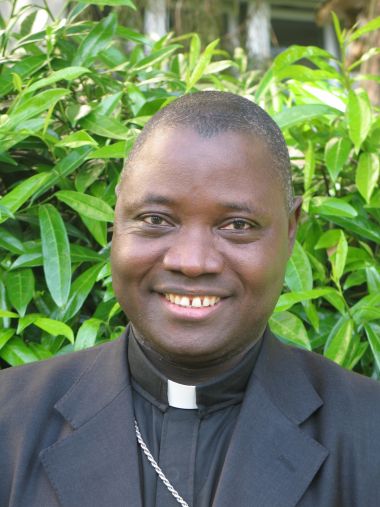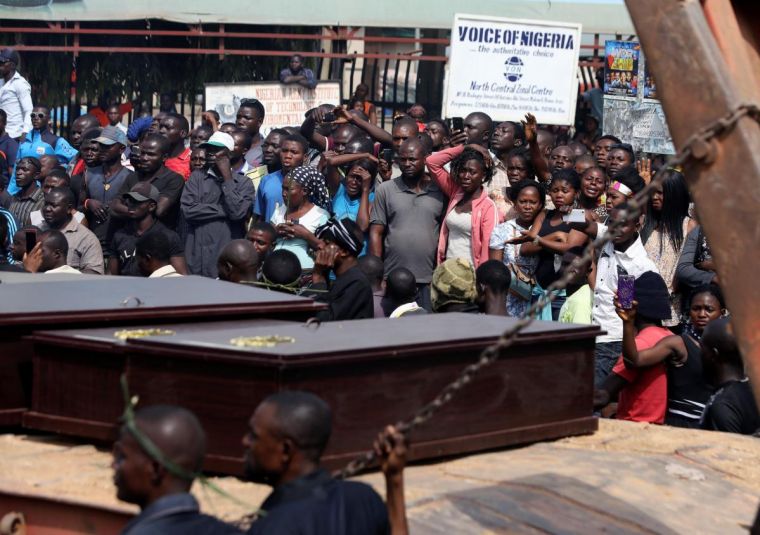Nigerian security forces accused of bias against Christian victims of attacks

Security forces in Nigeria have been accused of bias towards the perpetrators of attacks on largely Christian communities.
The Co-Adjutor Archbishop of Abuja, Ignatius Kaigama, said that political leaders and security forces both needed to work to protect minority groups.
Villagers in areas where the Fulani are active allege that police were absent while attacks were carried out by militant herdsmen. One group told him that the security forces arrested Christians who tried to defend themselves, Aid to the Church in Need reports.
He warned that a bias within the security forces was heightening ethnic tensions and inflaming the Fulani crisis.
"Biased and prejudiced official security reports heighten tension when they blame the victims instead of the aggressors because of the Nigerian 'factor' of tribal or religious affiliation. This sadly keeps the fire of the crisis raging," he said.
"Generally, it is when the militant herdsmen vanish after their deadly attacks that the poor villagers try to react to protect or defend themselves."
There has been a wave of clashes between nomadic Fulani herdsmen and Jukun Kona farmers in Jalingo Local Government of Taraba State, Nigeria in recent months.
A string of attacks on two primary schools, a health centre and 15 churches have left at least 65 people dead and around 9,000 people displaced.
The attacks were spread across 18 predominantly Christian villages.
Attacks have also been carried out by Kona farmers on Fulani settlements, with two mosques torched and over 23 Fulani killed.
The clashes were sparked by an altercation between a Fulani herdsman and a Kona farmer on 6 May.
The Archbishop, himself a member of the Kona minority, said: "The violence went on unchecked for a protracted period and the population of Internally Displaced People (IDPs) began to swell because of the increasing attacks of the gunmen."

The Archbishop said three Kona farmers were killed when he visited the area on 10 July.
He said that when he contacted the Deputy Commissioner of Police to ask for protection for the farming communities, he was told, "Your people like fighting."
"I asked him who my people were since we are all Nigerians? I explained to him how many people were complaining that since the start of the crisis, no security personnel was seen in Kona even when threats to invade Kona were becoming obvious by the day," he said.
Security forces eventually came but the Archbishop said he was told by some youths that they had been shot at and arrested "for rising in defence of their community against the marauding herdsmen".
The Archbishop said: "There should be a deliberate strategy by political and security authorities to protect minority groups in Nigeria."
His comments follow a submission by the Jubilee Campaign to the International Criminal Court last week claiming that the massacre of Christian farming communities in Nigeria by Fulani herdsmen is reaching genocidal levels.
'Nigeria: The Genocide is Loading' documents at least 52 Fulani attacks in the first half of 2019 and rejects the suggestion that these are simply farmer-herder clashes.
The report says that attacks by Fulani herdsmen are becoming increasingly regular but also more severe and appear to be concentrated on Christian-majority villages and churches.
It warns that attacks by Fulani herdsmen have surpassed terrorist group Boko Haram as the deadliest threat to civilians.
"In 2018, the Armed Conflict Location and Event Data Project reported how Fulani militants constituted the deadliest threat to civilians in Nigeria, killing over 1,000 civilians in 2018, surpassing Boko Haram Terrorist Group in casualties," the report reads.
"Now in 2019 alone, Fulani militants have attacked 20 villages. Their target is Christian-majority villages where they kill civilians, burn their homes, leaving the community fear-stricken and forcing many to abandon their homes."











